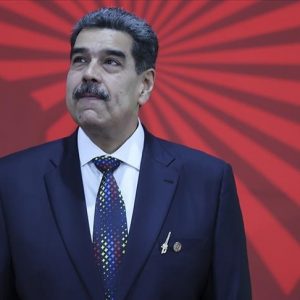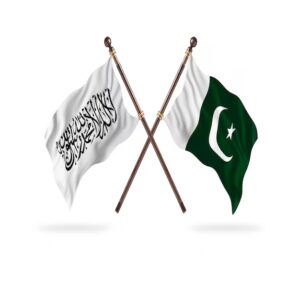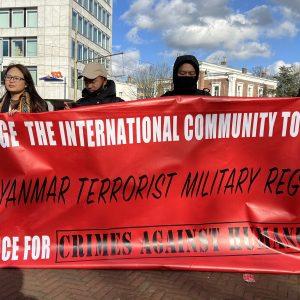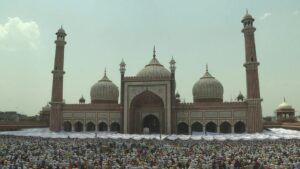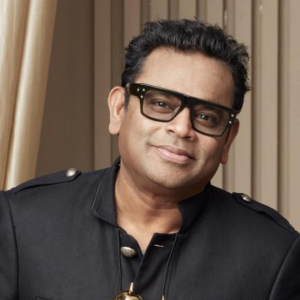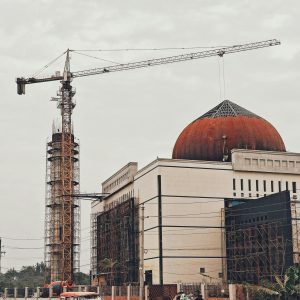India’s moon mission and Kashmir
Few people know that scientist Vikram Sarabai, founder of India’s space program and his family had close ties to the Kashmir Valley
By Iftikhar Gilani
India’s robotic vehicle “Vikram” that successfully landed near the south pole of the Moon as part of the Chandrayaan mission recently was named after Vikram Sarabai, the founder of India’s space mission.
Few people know that scientist Vikram Sarabai and his family had close ties to the Kashmir Valley.
While Vikram Sarabai chose Kashmir for his research on cosmic rays in 1945, his sister Mardula Sarabai had to endure countless hardships because she actively participated in the political movement for the right of self-determination for the people of Jammu and Kashmir.
She is perhaps the only non-Kashmiri personality to have been imprisoned for her commitment to the Kashmiri cause.
This rich Gujarati industrialist family used to travel to Kashmir every year for vacations. But in 1943, Vikram had arrived with a mission to detect high-intensity cosmic rays. He trekked through the mountains and meadows for several months and finally found these rays in high intensity on the Apharwat peak near the picturesque tourist resort of Gulmarg in north Kashmir. He completed his doctoral thesis by conducting experiments near Gulmarg.
Upon his return to London, he told his friends and family that he wanted to do something for Kashmir because the region had supported him in his research. In 1955, he laid the foundation of a scientific laboratory in Gulmarg, which is the only laboratory at such an altitude in the world.
Apart from this laboratory, his greatest gift was to introduce his sister Mirdula Sarabai to Kashmir, who later played an important role in the political struggle. She was a well-known leader of the Congress Party, the oldest political party in India, which was at the forefront of the country’s freedom struggle at that time.
At the time of India’s independence in 1947, she was the general secretary of the party and a member of the highest decision-making body Congress Working Committee (CWC).
As she said in her interviews, she was entrusted by the Congress party to look after its unit in Kashmir. And since her brother was already camped in the mountains of Gulmarg for research purposes, she joined him and was introduced to the local struggle against the Hindu Dogra Maharaja Hari Singh.
In an interview with the Delhi-based Urdu monthly Huma published in 1968, she said that during those years she had befriended Sheikh Mohammad Abdullah, then administrator and then prime minister of Jammu and Kashmir. In August 1953, when Abdullah was dismissed and then arrested, she was also targeted.
“My passport and residence permit for Kashmir were canceled,” she said.
-Expelled from Congress party
She was expelled from the Congress party for consorting with anti-India elements and imprisoned for a year in Delhi’s Tihar Jail. She was an ardent supporter of Sheikh Mohammad Abdullah, who at the time was leading the plebiscite front demanding the right to self-determination under U.N. Security Council resolutions.
The Indian government had charged Abdullah in connection with the murder of a police officer, and she was made a co-defendant. Pakistan had intended to hire a prominent lawyer to contest Abdullah’s case. But New Delhi had already indicated that it would not allow any foreign lawyer to appear in an Indian court.
According to author and legal expert AG Noorani, Mirdula Sarabai contacted and encouraged him to pursue Abdullah’s legal battle.
“In this way, I was introduced to Kashmir politics. I first met Sheikh Abdullah as his lawyer in the Jammu Special Jail in 1968,” says Noorani.
Since then, he has published countless research papers on Kashmir and authored several books on the subject.
While describing her stay in Delhi’s Tihar Jail, Sarabai mentioned in the interview that she had challenged her detention in the Supreme Court, invoking her fundamental rights and freedoms. She said that the then chief justice ruled that the issue of fundamental rights did not arise as Kashmir was a point of dispute between two countries.
In the same interview, she reiterated that the people of Kashmir should have the right to decide their own destiny.
Referring to Pakistan, she said that it cannot be detached from the Kashmir issue. “If the issue is on the table of the United Nations and part of the territory is on the other side of the ceasefire line, how can Pakistan be separated from this issue?”
She also rejected the argument that the fate of Indian Muslims has got tied to Kashmir and that if this Muslim-majority territory is separated, they will have to bear the consequences. She said Muslims in India and Hindus in Pakistan are not hostages but citizens of those countries.
She died in 1974, a year before her friend Sheikh Mohammad Abdullah signed an agreement with then Indian Prime Minister Indira Gandhi, abandoning the idea of self-determination in exchange for becoming chief minister of the region.
-Sarabai family and politics
Her brother Vikram Sarabhai was not only a scientist, but also a Sanskrit scholar, photographer, and lover of fine arts (poetry, music, and dance). The famous Indian dancer Mallika Sarabai is his daughter.
His entire family was involved in the freedom struggle and was greatly influenced by India’s freedom icon Mahatma Gandhi.
Malika Sarabai says there is an interesting story behind her family’s entry into politics.
Gandhi had come to Ahmedabad and had to visit one of his workers also named Sarabai.
Since Vikram and Mardula’s father Amba Lal Sarabai was known to many people in the city, his entourage was mistakenly led to their house.
Amba Lal took Gandhi into his home, and so began a relationship that went so far that whenever Gandhi visited Ahmedabad, he stayed at Sarabai’s house. Soon, other Congress leaders, including thinkers such as Rabindranath Tagore, also made a point to stay with them.
After the sudden death of Homi Jahangir Bhabha in a plane crash, Vikram Sarabhai was appointed chairman of the Atomic Energy Commission in May 1966. There he laid the foundation for India’s space program.
Former Indian president and scientist APJ Abdul Kalam was his discovery. Kalam himself writes that he did not have a high degree in engineering, but he always worked hard.
Vikram often saw him at work, while walking around the lab. He soon realized the potential of this young man and put him in charge of several programs, regardless of his academic degree.
According to Kalam, Sarabhai had a good sense of talent and wanted India to become a center of space exploration.
He died suddenly on December 31, 1971, at the age of only 52. The author of his biography, Amrita Shah, suspects “foul play” in Vikram’s death.
“Vikram had told me that both the Americans and the Russians were watching him,” she writes, quoting Vikram Sarabhai’s close associate Kamala Chaudhary.

